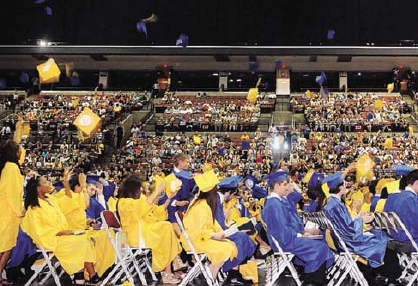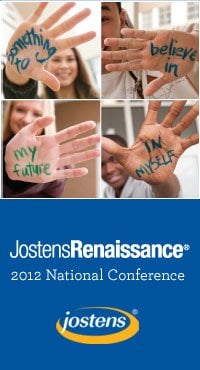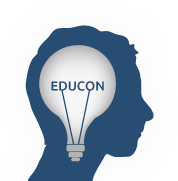 The culminating event for high school seniors and their parents is graduation. It is the moment that tells the world, “I did it!” Twelve years of school and more importantly, the last four years of a number of experiences and captured in this rite of passage we call commencement. It is the final time the class will be together as one to listen to inspirational messages and celebrate as a group.
The culminating event for high school seniors and their parents is graduation. It is the moment that tells the world, “I did it!” Twelve years of school and more importantly, the last four years of a number of experiences and captured in this rite of passage we call commencement. It is the final time the class will be together as one to listen to inspirational messages and celebrate as a group.
As the day approached, I reflected upon my year of learning from members of my Professional Learning Network, articles, blogs, or books I read, and the daily Words of Wisdom I read to students. This reflection led me to write my parting Words of Wisdom that I shared with the Gahanna Lincoln High School Class of 2012 just before they recessed from the graduation ceremony:
Good morning Lincoln High School Class of 2012. This is Mr. Carter with a few parting words of wisdom.
For the past four years, nearly every day we began with the Words of Wisdom. The purpose of the words of wisdom is to give your something to laugh about or think about that would change your mind or more importantly, influence your behavior. With that said, I cannot let you go without a few reminders:
• Spend your time doing what you should. This leaves no room for you to do what you shouldn’t.
• Remember to say “please”, “thank you”, “excuse me”, and “I’m sorry”… and mean it.
• Gentlemen, open doors for women, children, and the elderly.
• Ladies, be a lady… at all times.
• As difficult as it may be, don’t treat people according to how you feel, but how you want to be treated.
• Don’t make excuses; make choices.
• Whether you think you can or you can’t, you are probably right.
• Ignorance is a choice. Choose to be a life-long learner by reading on a regular basis.
• Learn something new by creating a 30 day challenge for yourself. You never know what old habits you will break or new ones you will create.
• Forgive others and forgive yourself… often.
• Learn from your failures, acknowledge your mistakes, and then move one.
• Presentation does matter. How you dress, how you speak, and how you interact with others can either open a door or close a door of opportunity.
• Pause before you post. What you post on Facebook, Twitter, Pinterest, Instagram or other forms of social media is a reflection of who you are.
• Take advantage of the technology that is at your disposal, but the best form of communication is voice to voice or face to face.
• At times, it’s important to disconnect in order to reconnect with the people that are closest to you.
• Don’t forget to play!
• Pay it Forward.
• Be the first to greet others. You may be the only person who speaks to them all day.
• Try to give 12 hugs a day.
• Finally, YOU MATTER and don’t ever forget it!
With something to think about, this is Mr. Carter. Make it a great life…. or not. The choice is yours. Thank you!
Be Great,
Dwight







 uilding, thus expanding our campus to across the street. With 2400 students, we were at capacity and had the opportunity to do something creative to provide more space for our students and at the same time meet the needs of today’s learner.
uilding, thus expanding our campus to across the street. With 2400 students, we were at capacity and had the opportunity to do something creative to provide more space for our students and at the same time meet the needs of today’s learner.